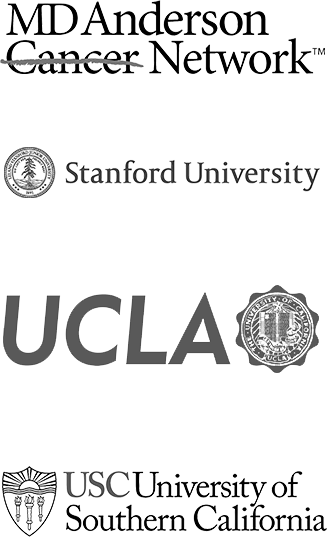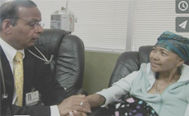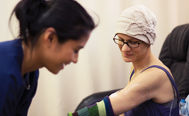 Many of us practice sun sensible habits and apply even greater effort during the bright sunny days of summer. Yet, in spite of our diligence, skin cancer remains the most frequently diagnosed form of the disease. Are we overlooking something regarding overexposure to the sun?
Many of us practice sun sensible habits and apply even greater effort during the bright sunny days of summer. Yet, in spite of our diligence, skin cancer remains the most frequently diagnosed form of the disease. Are we overlooking something regarding overexposure to the sun?
The specialists at the Cancer Center of Southern California tell us there are two forms of skin cancer, (melanoma), one has its origins from childhood and the other adulthood overexposure. It only takes a few serious sunburns in childhood to increase the chance of adult skin cancer. And, if this sounds like something that happened to you as a child, then all the more reason to include periodic skin screenings for yourself as a preventive measure.
Early Precaution is Best
Anyone can learn more about sun protection and take advantage of free skin screenings such as the ones jointly offered by the American Cancer Society and the American Academy of Dermatology.
In as few as 15 minutes, unprotected skin can be damaged by UV rays, but not until 12 hours later, will we really feel the full effect of overexposure. Checking the UV Index is a smart way to gauge the risk of sunburn. The higher the number, the greater the risk of UV exposure, sunburn and skin damage.
Also, most of our lifetime sun exposure has occurred in childhood by the time we’re 18. This means learning the best techniques for sun protection should begin at an early age.
Prevention for Your Child
According to the American Academy of Dermatology (AAD), sunscreen with an SPF of 30 or higher should be used for all children regardless of complexion. Even children with dark skin can get harmful sunburns. Any color change to the skin, whether burned or tanned, means damage from UV rays.
Babies under six months should have sunscreen with an SFP 15+, and it can be applied to the face and back of the hands if they aren’t wearing protective clothing covering those areas.
For yourself and children, it’s good practice to check your skin for any unusual changes, such as an irregular shaped mole or color change. If you find anything, Cancer Center doctors recommend you consult a specialist immediately.
Learn More from Cancer Specialists
If you suspect skin cancer or would like to learn more about skin cancer detection, contact the Cancer Center of Southern California. The center’s doctors are internationally renowned for their expertise in cancer diagnosis and treatment. Call us today at (310) 879-1099 to schedule a consultation.



